Triple talaq: India's Muslim women fight against instant divorce
- Published
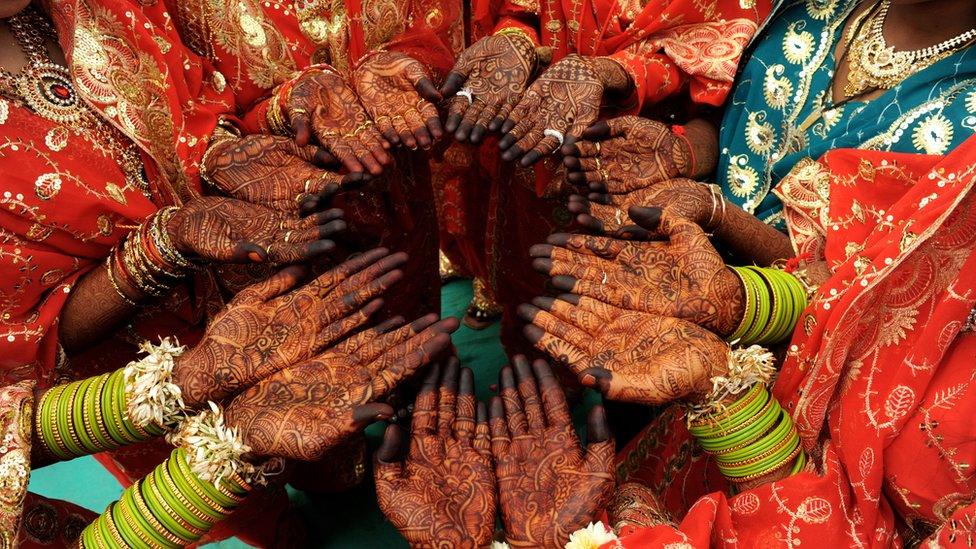
Activists say thousands of Muslim women have been divorced by their husbands by triple talaq
India is one of a handful of countries where a Muslim man can divorce his wife in a matter of minutes by just uttering the word talaq (divorce) three times. But this controversial practice of "triple talaq" is now facing a stiff challenge - the Supreme Court is considering whether to declare it unconstitutional, writes the BBC's Geeta Pandey in Delhi.
Shayara Bano's world came crashing down in October.
The 35-year-old mother of two was visiting her parents' home in the northern state of Uttarakhand for medical treatment when she received her talaqnama - a letter from her husband telling her that he was divorcing her.
Her attempts to reach her husband of 15 years, who lives in the city of Allahabad, have been unsuccessful.
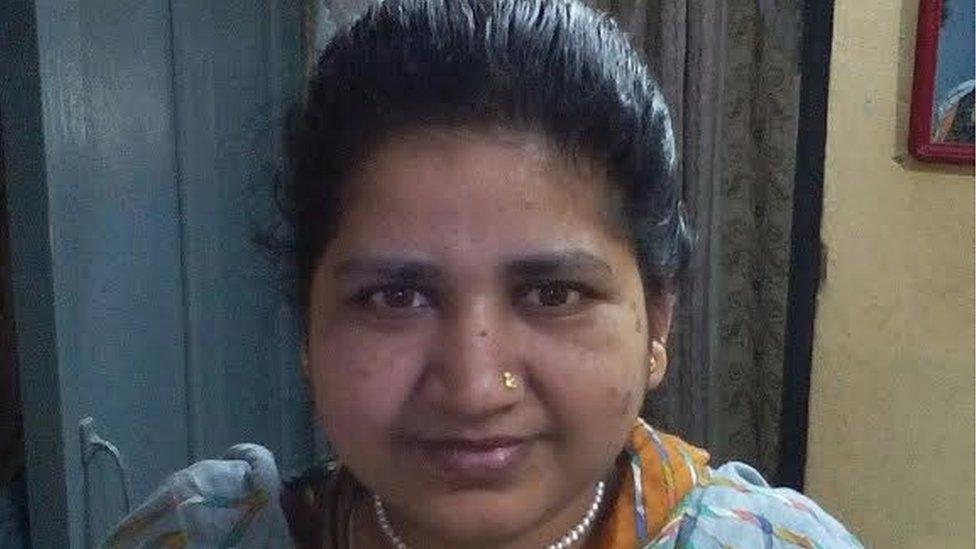
Shayara Bano has petitioned the Supreme Court to declare triple talaq unconstitutional
"He's switched off his phone, I have no way of getting in touch with him," she told the BBC over phone from her home in the northern state of Uttarakhand. "I'm worried sick about my children, their lives are getting ruined."
In February, a frustrated Shayara Bano filed a petition in the Supreme Court, demanding a total ban on triple talaq which, she says, allows Muslim men to treat their wives like "chattels".
Muslims are India's largest minority community with a population of 155 million and their marriages and divorces are governed by the Muslim personal law, ostensibly based on the sharia.
Even though it has been practised for decades now, the unilateral instant triple talaq is clearly an aberration - it finds no mention in sharia or the Koran.
Islamic scholars say the Koran clearly spells out how to issue a divorce - it has to be spread over three months which allows a couple time for reflection and reconciliation.
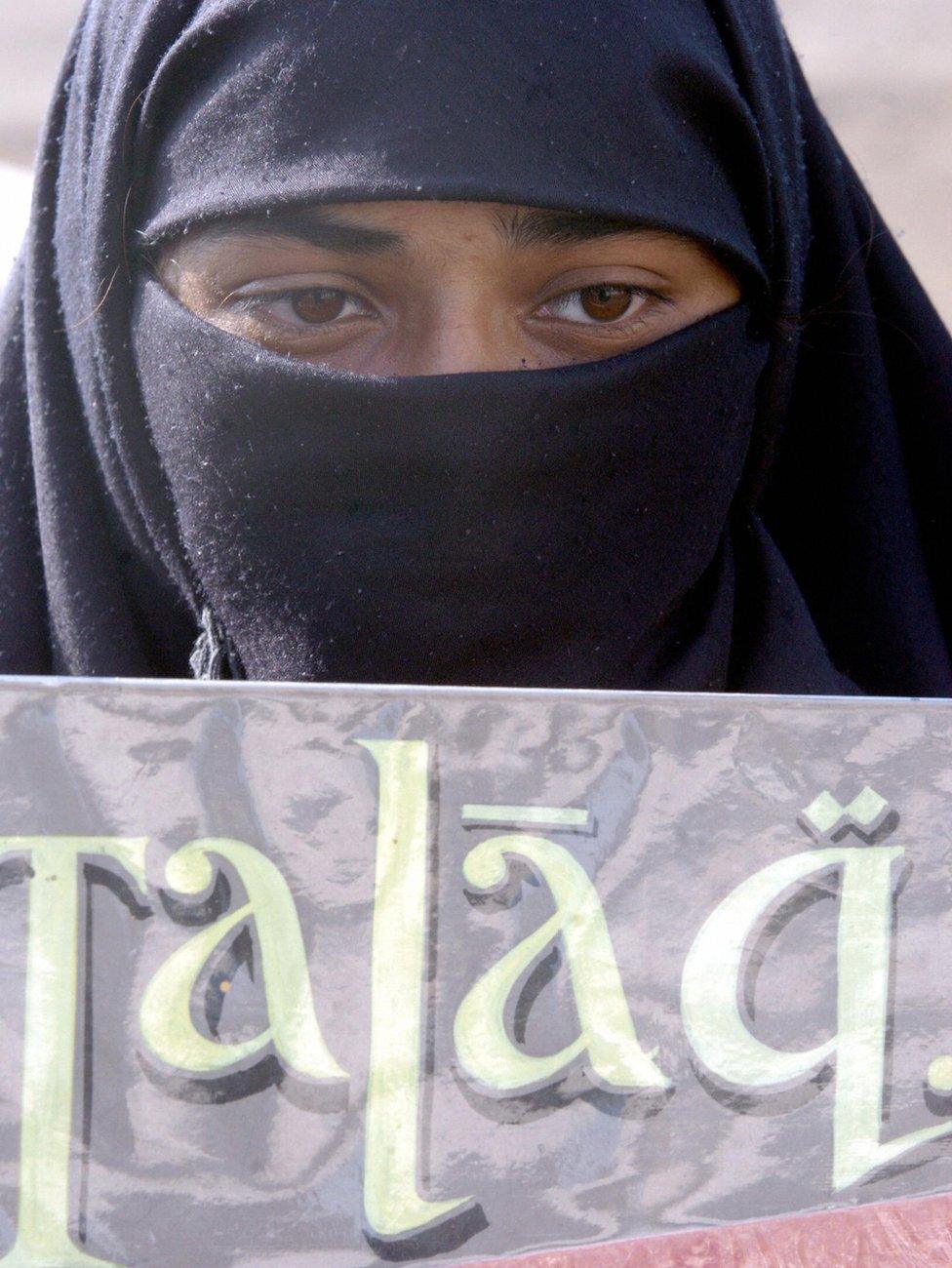
Activists are demanding a total ban on triple talaq
Activists say most Islamic countries, including Pakistan and Bangladesh, have banned triple talaq, but it thrives in India.
For years, Muslim women in India have also been demanding a ban on the reprehensible practice - in 2004, I wrote about a similar campaign, external to end triple talaq.
A dozen years later, the situation appears worse.
And modern technology has made it even easier for unscrupulous men to dump their wives - using text messages as well as post and the telephone to pronounce divorce. There have also been instances where men have used Skype, WhatsApp or Facebook for the purpose.
In November, the Mumbai-based Bharatiya Muslim Mahila Andolan (BMMA - Indian Muslim Women's Movement) released a report chronicling nearly 100 cases of triple talaq.
"Since 2007, we have come across thousands of cases of oral triple talaq, rendering women destitute with nowhere to go," says Professor Zakia Soman, social activist and BMMA founder.
In a majority of the cases compiled by the BMMA, the divorced women were from poor families and most said their husbands did not honour their obligations to pay maintenance, forcing them to return to their parental homes or fend for themselves.
Indian Muslims also follow Halala - where a divorced woman has to marry another man and consummate her marriage in order to go back to her former husband.
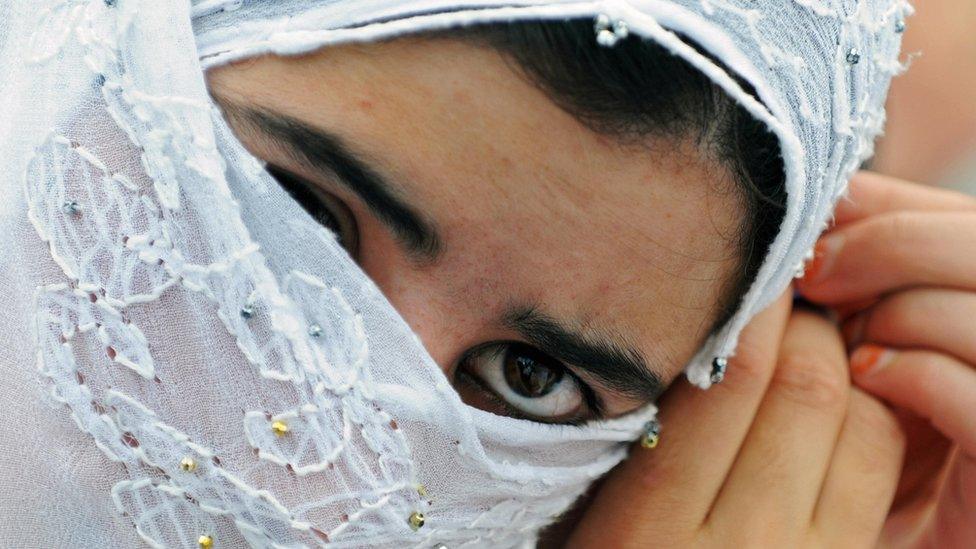
Campaigners say Muslim women are denied their Koranic rights
"India is the only country in the world where these un-Koranic practices exist. These are barbaric and totally unacceptable. There's a need for a comprehensive review of Muslim personal laws in India," Prof Soman told the BBC.
In October, the BMMA wrote a letter to Prime Minister Narendra Modi demanding "reforms in Muslim divorce and polygamy laws". They also filed a petition in the Supreme Court.
Prof Soman says what makes matters worse for the women is that "this un-Islamic triple talaq is often sanctioned by the Muslim clergy - the qazis and maulvis".
Perhaps that is why the Supreme Court's decision to take up Shayara Bano's petition has been opposed by several influential Muslim groups, including the All India Muslim Personal Law Board (AIMPLB).
Its working committee member Asma Zehra is quick to "condemn" the practice, describing it as "haraam" (forbidden), but insists that the divorce rate is still very low among Indian Muslims and that the issue is being blown out of proportion by forces inimical to Islam.
"Why is everyone after us, after our religion?" she asks.
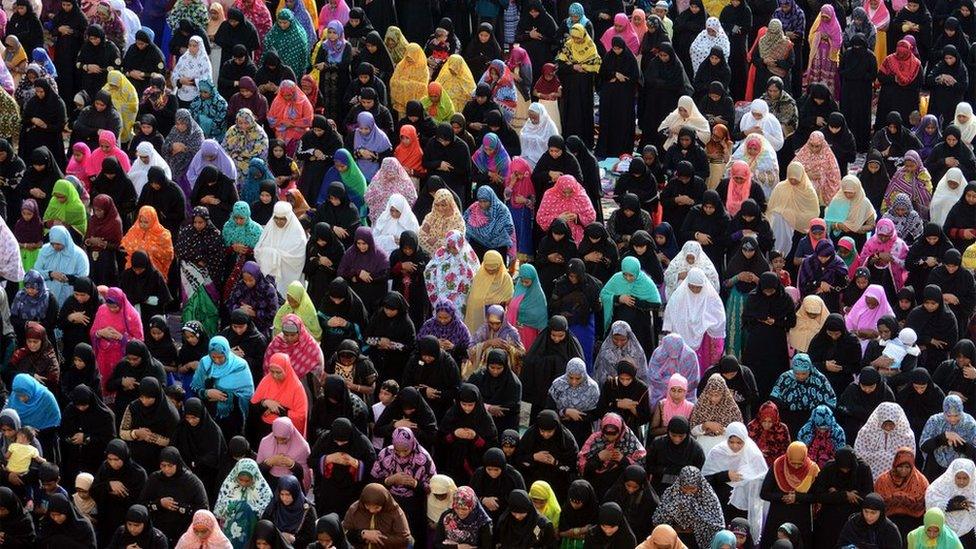
Ms Zehra says Muslims are struggling to survive under the present Indian government, led by Mr Modi's Hindu nationalist Bharatiya Janata Party, adding that the focus on the issue of triple talaq is "basically because they want to interfere in our religion" with the aim of introducing a uniform civil code.
She says that even though triple talaq has no Koranic sanction, it is not in their power to ban it because AIMPLB is "just a moral body, we can only educate people".
Ms Zehra says they are doing plenty to educate people, but activists say much more needs to be done.
"Condemning it is not enough. These practices need to be declared illegal," says Prof Soman.
"It's important that the Muslim family law is properly codified. Koran gave us our rights, the patriarchal forces have taken it away from women," she adds.
Shayara Bano, in her village in the hills of Uttarakhand, is pinning her hopes on the Supreme Court.
"I want my husband to take me back. I'm hoping to get justice from the court," she says.